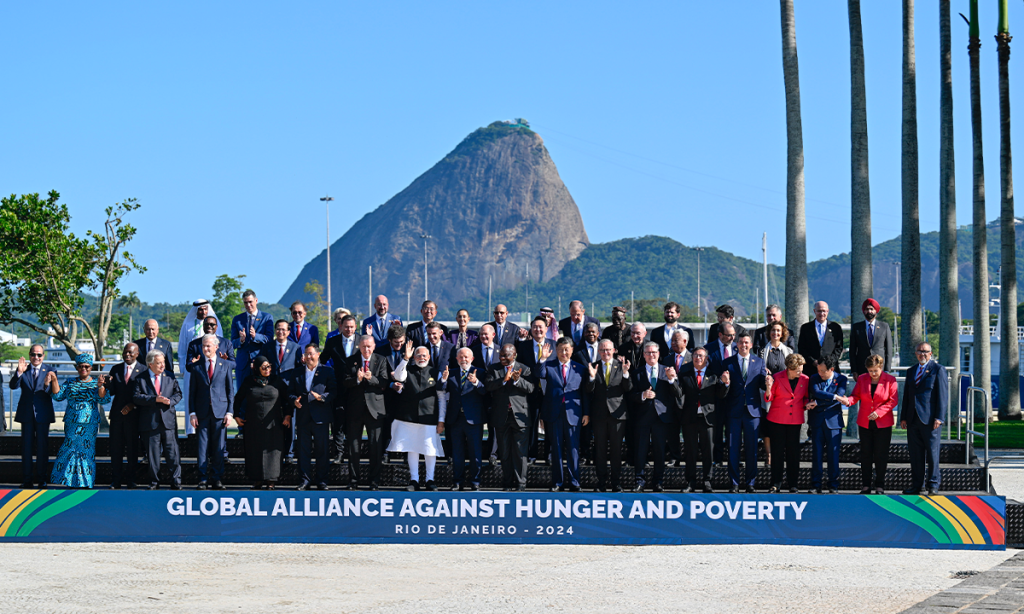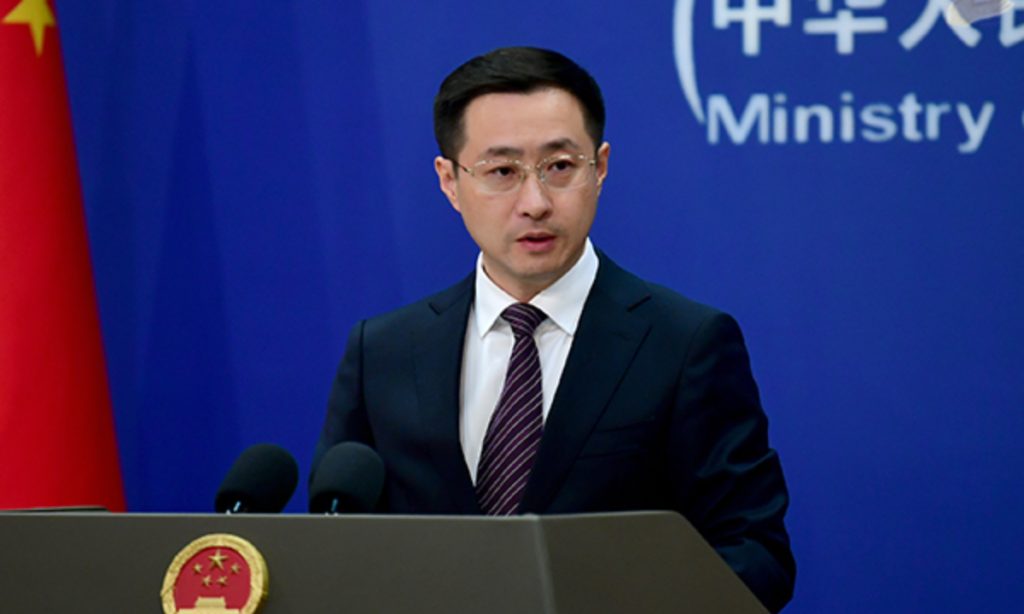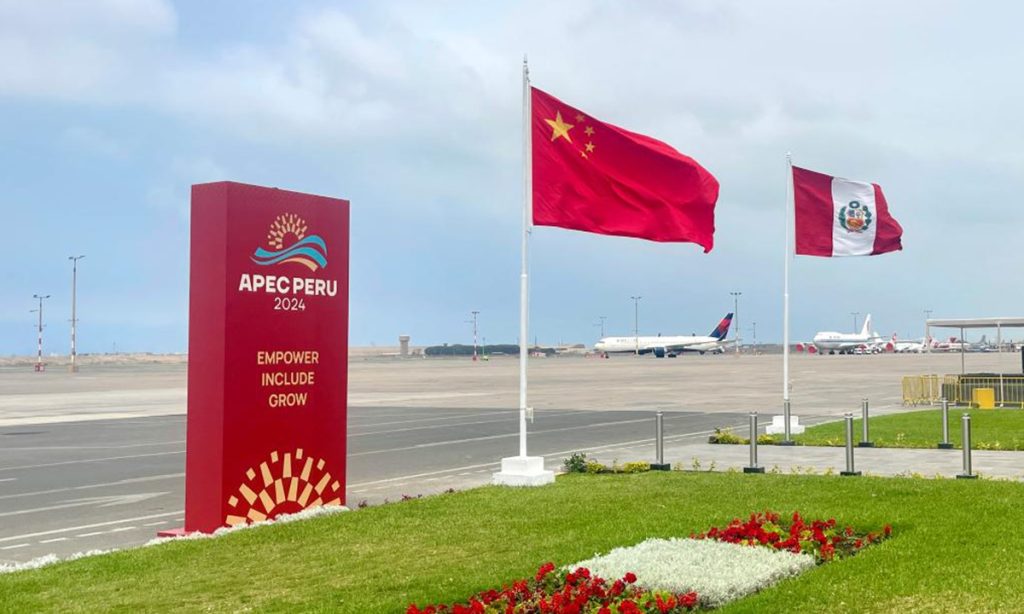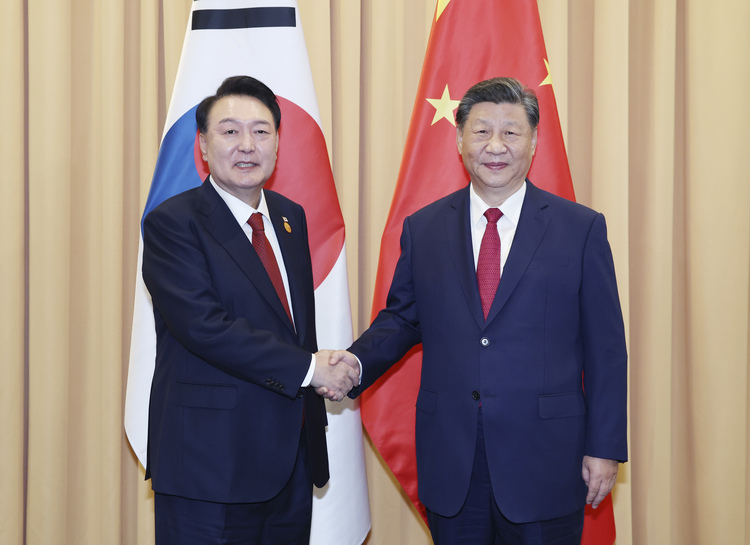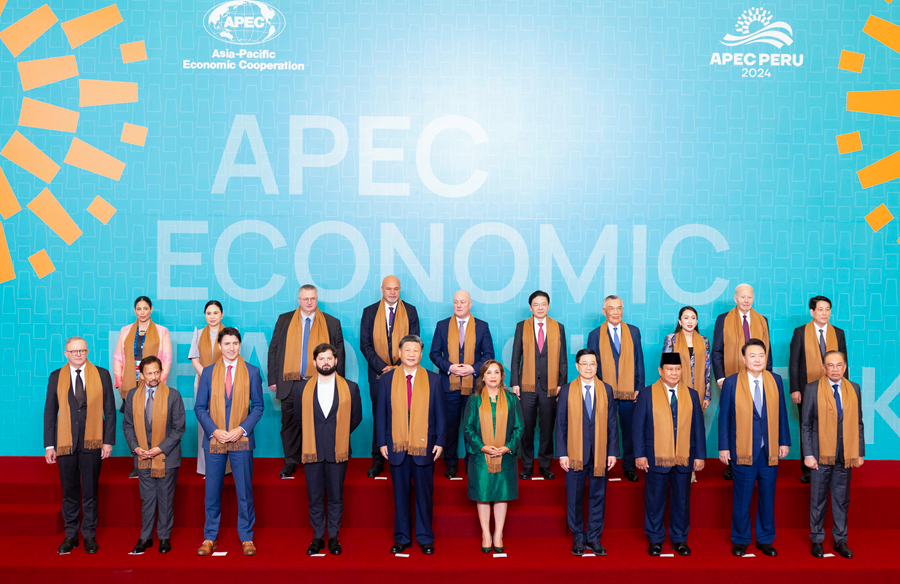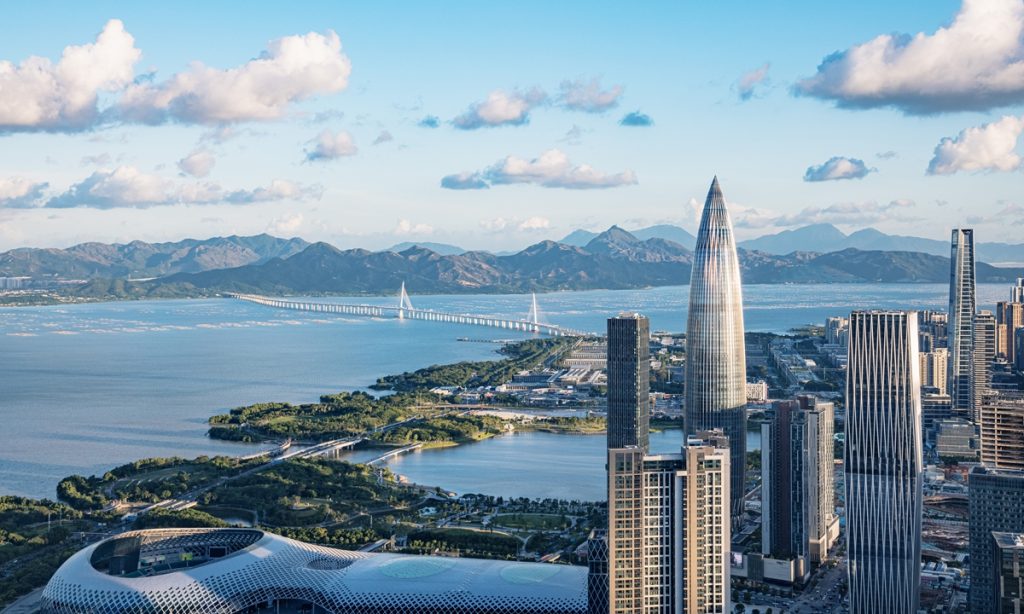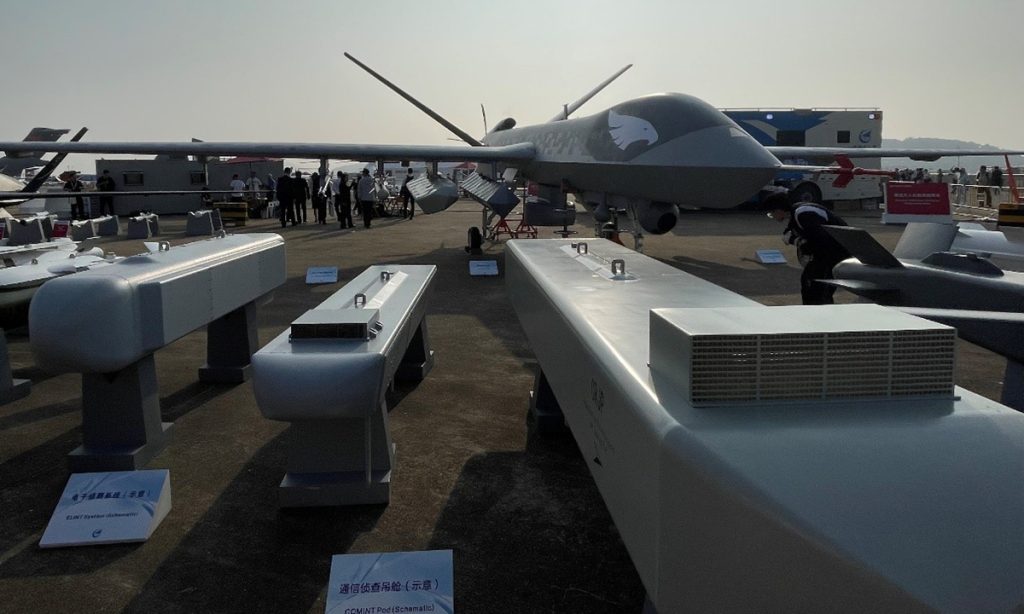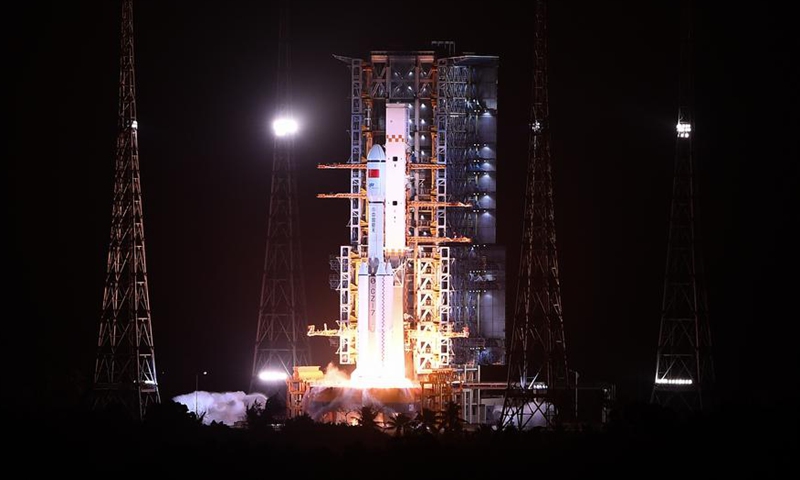Full Text: Address by Chinese President Xi Jinping at Session I of 19th G20 Summit
Chinese President Xi Jinping on Monday delivered an important speech at Session I of the 19th G20 Summit under the title "Building a Just World of Common Development."
Following is the English version of the full text of the speech:
Building a Just World of Common Development
Remarks by H.E. Xi Jinping
President of the People's Republic of China
On Fight Against Hunger and Poverty
At Session I of the 19th G20 Summit
Rio de Janeiro, November 18, 2024
Your Excellency President Luiz Inacio Lula da Silva,
Colleagues,
It gives me great pleasure to attend the G20 Summit in Rio de Janeiro. I thank President Lula and the Brazilian government for the warm hospitality extended to the Chinese delegation.
Today, transformation of a scale not seen in a century is accelerating across the world. Humanity faces unprecedented opportunities and challenges. As leaders of major countries, we should not let our vision be blocked by fleeting clouds. Rather, we must see the world as one community with a shared future, and shoulder our responsibility for history, take historical initiative and move history forward.
I pointed out at this forum that prosperity and stability would not be possible in a world where the rich become richer while the poor are made poorer, and countries should make global development more inclusive, beneficial to all, and more resilient. At the Hangzhou Summit, China placed development at the center of the G20's macroeconomic policy coordination for the first time, and the Summit adopted the G20 Action Plan on the 2030 Agenda for Sustainable Development and the G20 Initiative on Supporting Industrialization in Africa and Least Developed Countries. The Rio Summit this year has chosen the theme "Building a Just World and a Sustainable Planet." It places fighting hunger and poverty at the top of the agenda, and decides to establish a Global Alliance Against Hunger and Poverty. From Hangzhou to Rio, we have been working for one and the same goal, that is, to build a just world of common development.
To build such a world, we need to channel more resources to such fields as trade, investment and development cooperation, and strengthen development institutions. There should be more bridges of cooperation, and less "small yard, high fences," so that more and more developing countries will be better off and achieve modernization.
To build such a world, we need to support developing countries in adopting sustainable production and lifestyle, properly responding to challenges like climate change, biodiversity loss and environmental pollution, enhancing ecological conservation, and achieving harmony between man and nature.
To build such a world, we need an open, inclusive and non-discriminatory environment for international economic cooperation. We should promote a universally beneficial and inclusive economic globalization, energize sustainable development with new technologies, new industries and new business forms, and support developing countries in better integrating in digital, smart and green development to bridge the North-South gap.
To build such a world, we need to stay committed to multilateralism. We should uphold the UN-centered international system, the international order underpinned by international law, and the basic norms of international relations based on the purposes and principles of the UN Charter.
Colleagues,
China's development is an important part of the common development of the world. We have lifted 800 million people out of poverty, and met the poverty reduction target of the UN's 2030 Agenda for Sustainable Development ahead of schedule.
This achievement did not just fall into our laps. It is the fruit of the strenuous, unified efforts of the Chinese government and people. Everything China does, it always places the people front and center, and it solemnly declares that "not a single poor region or person should be left behind." To tackle poverty, we make targeted policies tailored to each village, each household and each person; we facilitate growth by vigorously channeling talent, funds and technologies to underdeveloped regions; we help localities generate growth by fostering industries with distinctive features and upgrading infrastructure, all in light of their own conditions; and we promote common prosperity by pairing up well-off regions with less developed ones. I have worked from village to county, city, provincial and central levels. Poverty alleviation has always been a priority and a major task I am determined to deliver.
China's story is proof that developing countries can eliminate poverty, and that a weaker bird can start early and fly high, when there is the endurance, perseverance, and striving spirit that enables water drops to penetrate rocks over time and turns blueprints into reality. If China can make it, other developing countries can make it too. This is what China's battle against poverty says to the world.
Colleagues,
China will always be a member of the Global South, a reliable long-term partner of fellow developing countries, and a doer and go-getter working for the cause of global development. A single flower does not make spring. China wants to see a hundred flowers in full blossom and will go hand in hand with fellow developing countries toward modernization. Today, I wish to outline China's eight actions for global development.
First, pursuing high-quality Belt and Road cooperation. On top of RMB700 billion yuan added financing windows and an additional RMB80 billion yuan injection into the Silk Road Fund, China is moving ahead with the development of the multidimensional Belt and Road connectivity network, one that is led by the building of a green Silk Road and will empower a digital Silk Road.
Second, implementing the Global Development Initiative. On the basis of over 1,100 development projects already in operation, we will make sure the Global South research center that is being built is fit for purpose, and the 20 billion U.S. dollars of development funds will continue to be put to good use to support developing countries and deepen practical cooperation in areas such as poverty reduction, food security and the digital economy.
Third, supporting development in Africa. At the Summit of the Forum on China-Africa Cooperation held in September this year, I unveiled ten partnership actions on joining hands with Africa to advance modernization over the next three years and, in this connection, a commitment of RMB360 billion yuan in financial support.
Fourth, supporting international cooperation on poverty reduction and food security. China has decided to join the Global Alliance Against Hunger and Poverty. We support the G20 in continuing to convene the Development Ministerial Meeting, and will stay a committed host of the International Conference on Food Loss and Waste.
Fifth, China, alongside Brazil, South Africa and the African Union, is proposing an Initiative on International Cooperation in Open Science to help the Global South gain better access to global advances in science, technology and innovation.
Sixth, supporting the G20 in carrying out practical cooperation for the benefit of the Global South and using such outcomes as the Roadmap to Increase Investment in Clean Energy in Developing Countries and the High-Level Principles on Bioeconomy to good effect. China supports the work of the Entrepreneurship Research Center on G20 Economies based in Beijing, and supports cooperation on digital education and the digitization of museums and ancient archives.
Seventh, implementing the G20 Anti-Corruption Action Plan. We are strengthening cooperation with fellow developing countries in fugitive repatriation and asset recovery, denial of safe haven, and anti-corruption capacity building.
Eighth, China is pursuing high-standard opening up, and unilaterally opening our doors wider to the least developed countries (LDCs). We have announced the decision to give all LDCs having diplomatic relations with China zero-tariff treatment for 100 percent tariff lines. From now to 2030, China's imports from other developing countries are likely to top 8 trillion dollars.
Colleagues,
The Chinese often say, "A journey of a thousand miles begins with the first step." China is ready to take steps together with all parties to build a just world of common development, leave poverty in the past, and turn our vision into reality.
